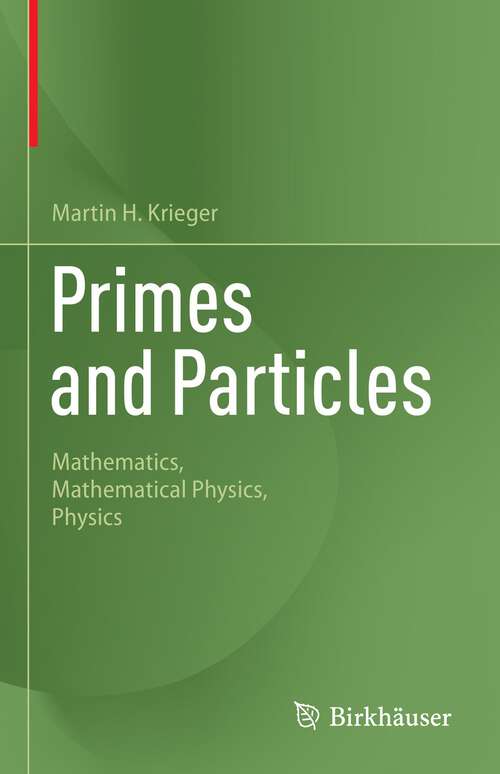Primes and Particles: Mathematics, Mathematical Physics, Physics (2024)
By:
Sign Up Now!
Already a Member? Log In
You must be logged into Bookshare to access this title.
Learn about membership options,
or view our freely available titles.
- Synopsis
- Many philosophers, physicists, and mathematicians have wondered about the remarkable relationship between mathematics with its abstract, pure, independent structures on one side, and the wilderness of natural phenomena on the other. Famously, Wigner found the "effectiveness" of mathematics in defining and supporting physical theories to be unreasonable, for how incredibly well it worked. Why, in fact, should these mathematical structures be so well-fitting, and even heuristic in the scientific exploration and discovery of nature? This book argues that the effectiveness of mathematics in physics is reasonable. The author builds on useful analogies of prime numbers and elementary particles, elementary structure kinship and the structure of systems of particles, spectra and symmetries, and for example, mathematical limits and physical situations. The two-dimensional Ising model of a permanent magnet and the proofs of the stability of everyday matter exemplify such effectiveness, and the power of rigorous mathematical physics. Newton is our original model, with Galileo earlier suggesting that mathematics is the language of Nature.
- Copyright:
- 2024
Book Details
- Book Quality:
- Publisher Quality
- ISBN-13:
- 9783031497766
- Related ISBNs:
- 9783031497759
- Publisher:
- Springer Nature Switzerland
- Date of Addition:
- 03/25/24
- Copyrighted By:
- The Editor
- Adult content:
- No
- Language:
- English
- Has Image Descriptions:
- No
- Categories:
- History, Nonfiction, Science, Earth Sciences, Mathematics and Statistics, Philosophy
- Submitted By:
- Bookshare Staff
- Usage Restrictions:
- This is a copyrighted book.
Reviews
Other Books
- by Martin H. Krieger
- in History
- in Nonfiction
- in Science
- in Earth Sciences
- in Mathematics and Statistics
- in Philosophy
